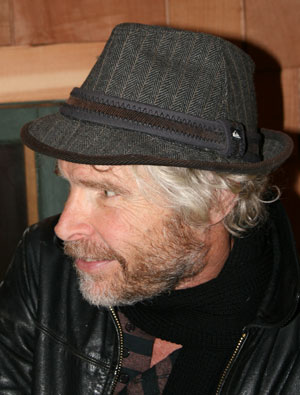
Richard Barker is not a painter or a visual artist. But he has developed a theory about how art can influence and shape us. In his talk, Barker will review recent history and the future direction of art, using painting as the medium for his discussion. Barker speaks as part of the Idyllwild Community Center Speaker Series from 6 to 7:30 p.m., with a reception at 5:30 p.m., free to the public at the Creekstone Inn, Thursday, April 21.
“Music, literature, paintings and films play such important roles in our lives. What need in us is fulfilled by art as nothing else can?” asked Barker. He believes that art has long had the ability to lift us, to inspire us and to cause us to experience a state of shared sublimity.
His 2014 book, “Transcending Evolution: A Christian Guide to Understanding, Accepting and Transcending Evolution,” is an examination of how, with awareness and recognition of our long-held personal patterns, we can overcome hard-wired perceptions and consequent choices. Using his understanding of neuroscience, Barker also will show how awareness of our hard-wired patterns can open us to a wider appreciation of art and a greater connection with our fellow humans.
“Every painting is an invitation to linger a while and take a closer look, which rekindles your connection with the external world and with others,” said Barker. “If I focus on the differences in another’s story, that can be distancing,” he said. “But if I choose to focus on what we share, that can promote a sense of connection.”
Barker believes current trends in art are creating distance rather than connection. “The history of fine art painting reveals that over the centuries, artists developed ever better techniques for rendering the world and humanity’s place in it,” he noted. “But the mid-1800s saw the beginnings of a radical shift in the intent of the artist — focusing less on the external world and more on the artist’s internal impression or reaction to the world. Many modern painters completely ignore the external world altogether. What caused this shift? Where will art go from here?”
In his presentation, Barker will diagnose a current trend in art away from using the external world and our shared humanity to bring us together, to a postmodern trend toward fragmentation and “anything goes” pluralism — accentuating differences in our personal stories rather than commonalities.
For Barker, finding commonalities in the external world we share leads to empathy and understanding. When artists begin to ignore the external world and our common experiences, the result is a cultural moment with less empathy for and connection with others. He believes that is what is happening in the postmodern movement in art. He sees current trends in art as a reflection of growing fragmentation in our social structure and political discourse, “I think postmodernism is an accurate reflection of this age and my question is, ‘What has happened to us?’” he posited.
As part of his presentation, Barker will feature paintings of a local artist, Michael Newberry, as an antidote to what he sees as current ego-based and divisive trends in art. “I developed my theory of art back in the ’90s,” he said. “I did not know which direction art would take in the future, but I did know the direction I hoped it would take. But after 20 years of waiting, I was starting to lose hope of it happening in my lifetime.”
Barker will feature Newberry because his paintings mirror the direction Barker had hoped art would take — celebrating humanity’s place in the external world and elevating the viewer’s experience to one of sublimity.
“None of our global problems will be solved from the top down,” said Barker. “Meaningful social change can only happen from the bottom up so that people feel more connection and more commonality.”
There is no charge for Barker’s presentation and everyone is welcome to attend.










